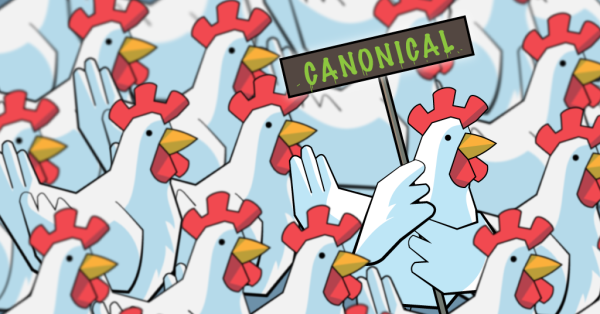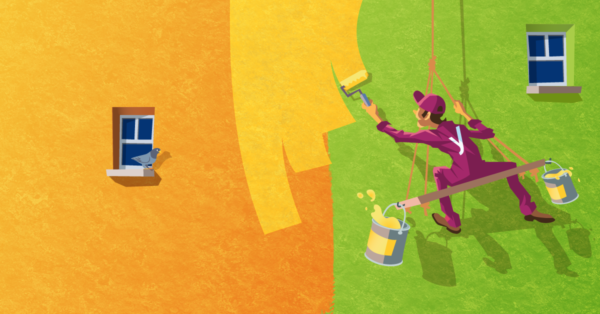What if people copy content from your site?

It can happen to you: other people copy content from your site and republish it on their own site. You have gone the extra mile to write an awesome article for your website, when, all of a sudden, another website takes possession of it. It can be frustrating to see this happen, and it happens more often than you think. If your website reaches a certain number of visitors and stands out from the crowd, there will be people that try to benefit from your content for their own gain.
Simple example: after this post is published, it will appear in our RSS feed. And this will cause other websites to publish the article automatically on their own website. They fully automated that process. Not the nicest way to express appreciation, right? But it happens.
In this article, we’d like to show you a number of ways that people can copy your content. We’ll also show you what possible actions you can take, without directly asking your lawyer to take action.
People copy content via your RSS feed
Most content management systems publish an RSS (Really Simple Syndication) feed for your website. Being the fossil that I am, I still use these feeds in my RSS reader (I’m using Feedly) so I can read up on a number of websites at once.
However, some websites use RSS to include news from other websites on their website. That can be done by including a list of your latest article titles that link to your website. You’ll probably have no problem with it if someone does this.
But if it’s done to republish your content on their website without that link to you, it’s a different story. This is one of the reasons our Yoast SEO plugin allows you to add an extra line to your feed items (check out the Search appearance > RSS section of our Yoast SEO plugin). That line could say “The article (article title) was first published on (your URL)”. We include a line like that by default, by the way. This ensures that, if people copy content from your website via your RSS feed, there will always be a link back to your website. Google will find that link and understand you are the original source.
Make sure there is a link back to the original article in the RSS feed. That way, the website that copies your content won’t get all the credit for your article.
Manually copying your content
If someone manually copies your content or removes that line directing the reader and Google to your website from your RSS feed, chances are you won’t even notice they copied it. But if you do, first, try to get them to add that link back to your article in there. Just send an email and hope that the ‘thief’ is willing to add that link.
We have had people telling us that the only reason they copy content from our website was that they felt their readers should know about that specific issue or tip as well. There didn’t appear to be bad intentions and the link was added immediately after our email.
The best way: canonical link
The best way to make sure search engines understand that your content is the original source for the content is by adding a canonical link back to your website. If the other website is willing to do so and is running our Yoast SEO plugin, this is easy as pie. If the website at hand has no bad intentions, they will be willing to add that link.

Get rid of that copy altogether
It’s trickier when people have less good intentions for stealing your content. If they copy content from your website only for their own benefit, they might not even respond to your email. In that case, you may have to use your copyright as the original author to have that content removed. Google suggests contacting the host of the website and filing a request at Google as well (see the last paragraph of that article).
Translating your content
There is another way that websites can copy your content. If this article, for instance, gets translated into Italian, we might not find even out about it. But usually, articles like that do surface on Twitter. And you obviously have a saved search for your brand on social, right? Or one of the internal links that you added could remain in the translated article and show up in Google Analytics. You might find a Google Alert in our inbox showing that article. There are ways to find a translated article.
Do you want to be associated with that website?
Now I hear you think “If a canonical would help to link duplicate content cross-domain, I need hreflang here.” But you probably don’t. There is no use adding that hreflang tag if the other site isn’t linking back to you using the same method. And you have no control over the translation whatsoever, so you might not want to be linked to that domain anyway.
If the translation makes sense in your book, I would ask the other website to add a link in the article, stating that the original article appeared on your website, in English (or whatever language you originally wrote it in). If the translated article is for an audience that you’re not targeting, I wouldn’t even put too much effort into it.
Artwork
I’d like to wrap up this article with a small remark about artwork. We use artwork heavily in our publications (and branding). Every single illustration we have on our website is our own.

In case a website, Youtube video or social media publication uses that artwork, we have the option to have that publication taken down because of that. Usually, using this copyright angle is the easiest way to get rid of non-responsive thieves of your content. Simply send the website an email first, and ask the hosting company to take action if you get no response. Another reason to stay away from stock photos and use your own media to enhance your website!
Good luck!
Read more: DIY: Duplicate content check »


Great article. I wanted to ask about duplicate content since my website is multilang., when i translate an article any SEO site check my content as duplicate. How to avoid this problem?
Thanks
Hi Jassim! One of the biggest risks of a multilingual website is duplicate content. You can avoid this issue by using hreflang correctly. You can read more about this in this article: https://yoast.com/what-is-international-seo/. Hope that helps!
Wonderfully you have mentioned how can we become safe from thieves of our content. Really amazing sort of information. Thanks for this article.
On a slightly different note, is it actually illegal to copy the look of an existing website? No content copied, just the basic layout of pages with new original content.
I think it has to be distinctive enough for that to hold in court. Btw, we had that at hand a few times as well. Ask yourself if it’s worth the hassle before taking action on that, I think.
This information is very helpful
Full disclosure here. I do take snippets from certain Yoast posts and add commentary on my blog. Also known as content curation. However, I always give proper credit AND provide a do-follow backlink to the original article. The snippet is usually a few sentences or so surrounded by quotes. I find it to be a great way to add my 2 cents and keep my blog fresh. Creating original content is not easy and very time-consuming! However, I think it is only fair to provide the original author and website proper credit with a do-follow backlink for their hard work.
“I think it is only fair to provide the original author and website proper credit with a do-follow backlink for their hard work.”
— Ryan
Agreed.
If you use Press This to create a Post on your site, can you use the Canonical to attribute back to the Source, and should you do so?
WordPress admin Press This is useful for helping to create links back to the source. I’ve used this (judiciously) in the past. Generally, I only use the first paragraph of the author’s content and then a Read More link back to the source. Is this ethical and fair? Or must you always get the author’s permission?
That’s like a quote, right.
Hello,
I used killduplicate.com/en/
and it’s work well :)
Is the following also true of the free Yoast?
“Yoast SEO plugin allows you to add an extra line to your feed items. That line could say “The article (article title) was first published on (your URL)”. There is a line like that included by default”?
I have never noticed this feature. Is it configurable?
Yes, at SEO > Search Appearance > RSS
Thank you for the article. I’ll adopt your methods
It’s very frustrating to see people taking it as an art of profession of copying contents from an external blog, republish it and restructure the keywords to best suit their selfish purposes. This particularly happen to those that have taking time to publish outstanding articles. In this case, what do we do? Is there any need to prevent abnormalities in the future?
Keeping track of copied contents can be extremely difficult, especially if you have hundreds of articles in your niche site.
I’ve had to deal with so many copied contents in recent times. And the problem is, most of them didn’t link back at all.
I’m already think of putting a DMCA badge, just to fend off potential copiers.
I’ve been in a similar situation before…
The site i was dealing with was actually a russian website but we eventually settle it..
I would like to know more about the canonical link. Can you please explain more?
Hi Tunde, thanks for your comment. Perhaps this article can help?
https://yoast.com/rel-canonical/